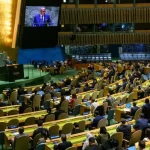This significant funding reflects the severity of the ongoing crisis in Northern Ethiopia, where millions face a complex health emergency. The WHO, along with other humanitarian organizations, is working tirelessly to deliver essential medical supplies, deploy healthcare workers, and coordinate emergency response efforts.
Beyond Ethiopia: A Global Response:
While Ethiopia’s situation is critical, WHO’s commitment to global health security extends far beyond. Here’s a look at their broader efforts in 2024:
- Rapid Deployments: The Global Outbreak Alert and Response Network (GOARN) deployed personnel to a total of 25 health emergencies, including the escalating violence in Israel and the occupied Palestinian territory, the drought and food insecurity in the Greater Horn of Africa, and the cholera outbreak in Zambia.
- Investing in Knowledge: OpenWHO.org, WHO’s online learning platform, boasts a total of 8.6 million enrollments across 270 public health courses offered in 72 languages. This platform empowers healthcare workers worldwide to develop their skills and knowledge.
- Standby Partner Network: Collaborating with the Standby Partner Network, WHO secured critical support for 13 graded emergencies through the deployment of 43 surge personnel across 19 WHO offices.
Looking Ahead:
The WHO’s dedication to global health security is evident in its multifaceted response to public health emergencies. Continued investment in rapid response teams, knowledge-building initiatives, and collaboration with partners is essential for effectively managing future health crises around the world.





